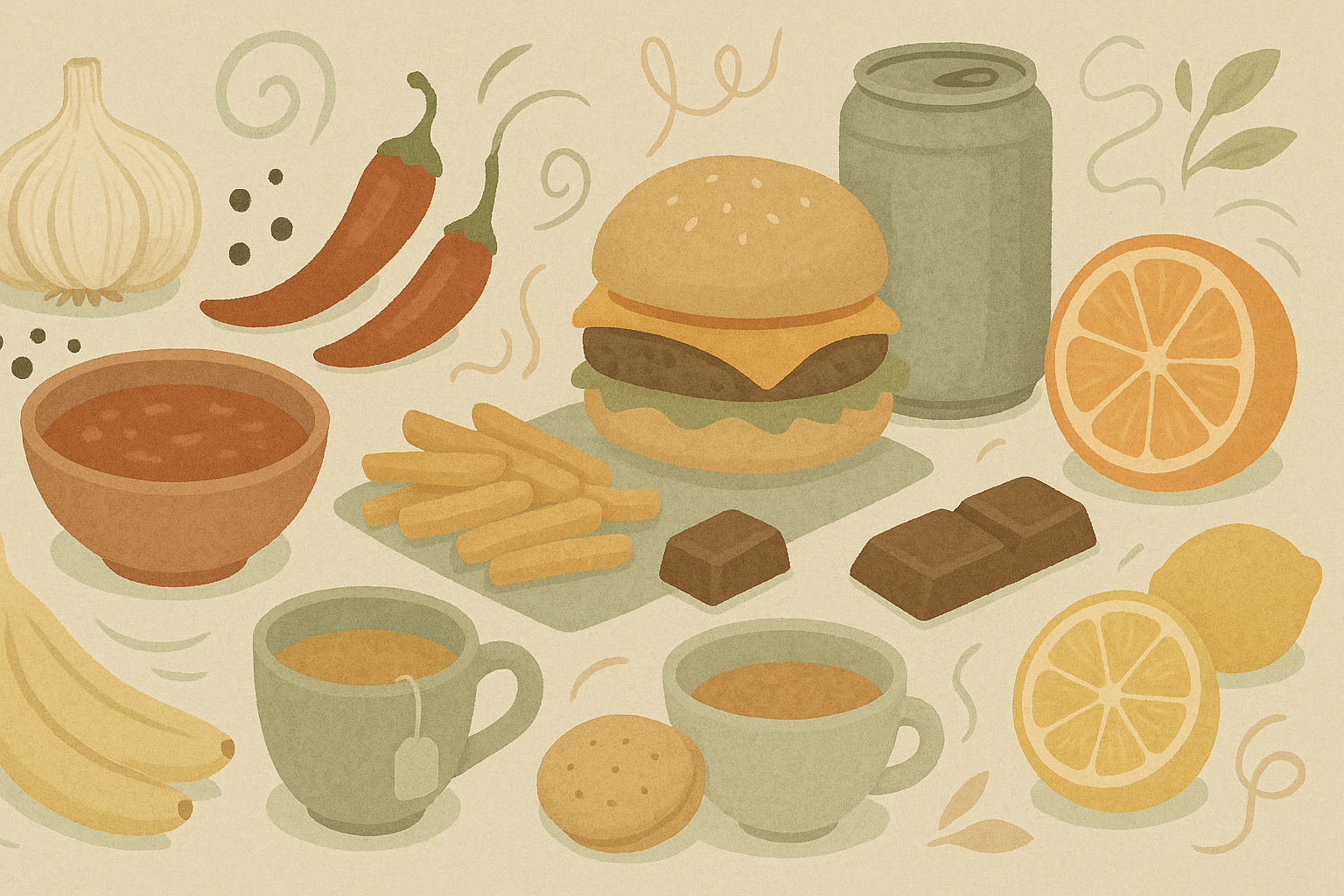Important Note
Every person with CHS may react differently to various foods and substances. This guide is based on reported experiences and available research, but your individual triggers may vary. Always consult with your healthcare provider about your specific situation.
Common Trigger Foods
The following foods and ingredients have been reported to trigger or worsen CHS symptoms in some people. It's important to note that not everyone will react to all of these triggers.
Black Pepper & Capsaicin
- Black pepper and peppercorns
- Hot peppers and chili products
- Spicy foods and sauces
- Capsaicin-containing topical products
Chocolate & Caffeine
- Dark chocolate and cocoa products
- Coffee and energy drinks
- Tea (especially black tea)
- Chocolate-flavored products
Alcohol & Fermented Foods
- All types of alcoholic beverages
- Kombucha and fermented drinks
- Some pickled foods
- Certain vinegar-based products
Other Common Triggers
- Citrus fruits and juices
- Tomatoes and tomato-based products
- Cinnamon and nutmeg
- Certain herbal supplements
Safer Food Alternatives
While individual experiences may vary, these foods are generally reported to be better tolerated by people with CHS, especially during recovery phases.
Bland Staples
- Plain rice or toast
- Bananas
- Plain crackers
- Boiled potatoes
Proteins
- Plain chicken (baked or boiled)
- Plain fish
- Eggs (when tolerated)
- Plain tofu
Vegetables
- Steamed carrots
- Cooked green beans
- Steamed zucchini
- Plain sweet potatoes
Beverages
- Water
- Electrolyte solutions
- Weak chamomile tea
- Clear broths
Tips for Managing Triggers
Keep a Food Diary
Track what you eat and any symptoms that follow to identify your personal triggers.
Introduce Foods Gradually
After a CHS episode, reintroduce foods slowly and one at a time to monitor reactions.
Prepare Foods Simply
Avoid complex seasonings and stick to simple cooking methods like steaming or baking.
Consult Healthcare Providers
Work with your healthcare team to develop a personalized diet plan that works for you.
